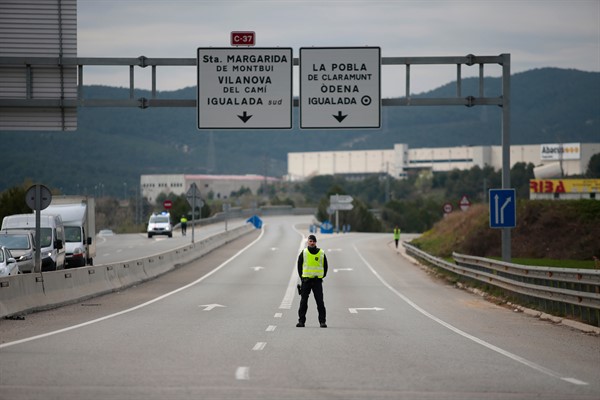MALAGA, Spain—In a decision with international significance, Spain’s Constitutional Court ruled last month that the country’s 50-day lockdown to counter the initial spread of the coronavirus pandemic in the spring of 2020 was unconstitutional and therefore illegal. In coming to its historic decision, the court focused on whether Spain’s lockdown constituted a limitation or an effective suspension of fundamental rights.
Prime Minister Pedro Sanchez invoked a “State of Alarm”—the least serious of the three states of emergency outlined in Spain’s Constitution—in March 2020, which should have only allowed for a limitation of fundamental freedoms. The court ruled instead that the lockdown imposed by the Spanish government consisted of a temporary suspension of those freedoms, for which a “State of Emergency”—the step above a State of Alarm—should have been invoked. That would have required prior approval from Spain’s Congress of Deputies, the lower house of parliament, which Sanchez didn’t even attempt to seek.
Although the verdict was narrowly decided by a 6-5 majority, the court’s description of the lockdown seems apt, considering that shopping for food was the only outdoors activity permitted in Spain while it was in place. During those seven weeks, police patrolled the streets of even the quietest villages, empowered to fine anyone not shopping for “essential” items, although authorities never adequately defined what qualified as “essential.” Police handed out over a million of these fines in total, all of which must now be rescinded and/or refunded.

